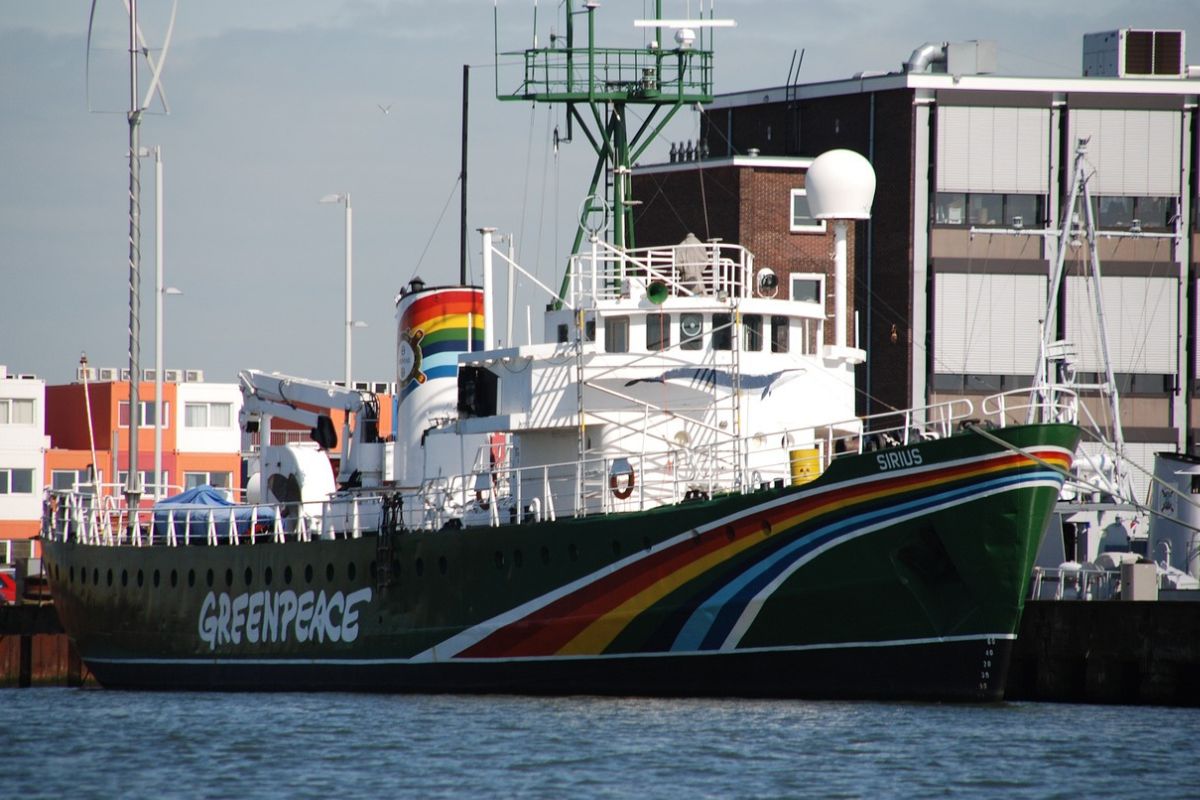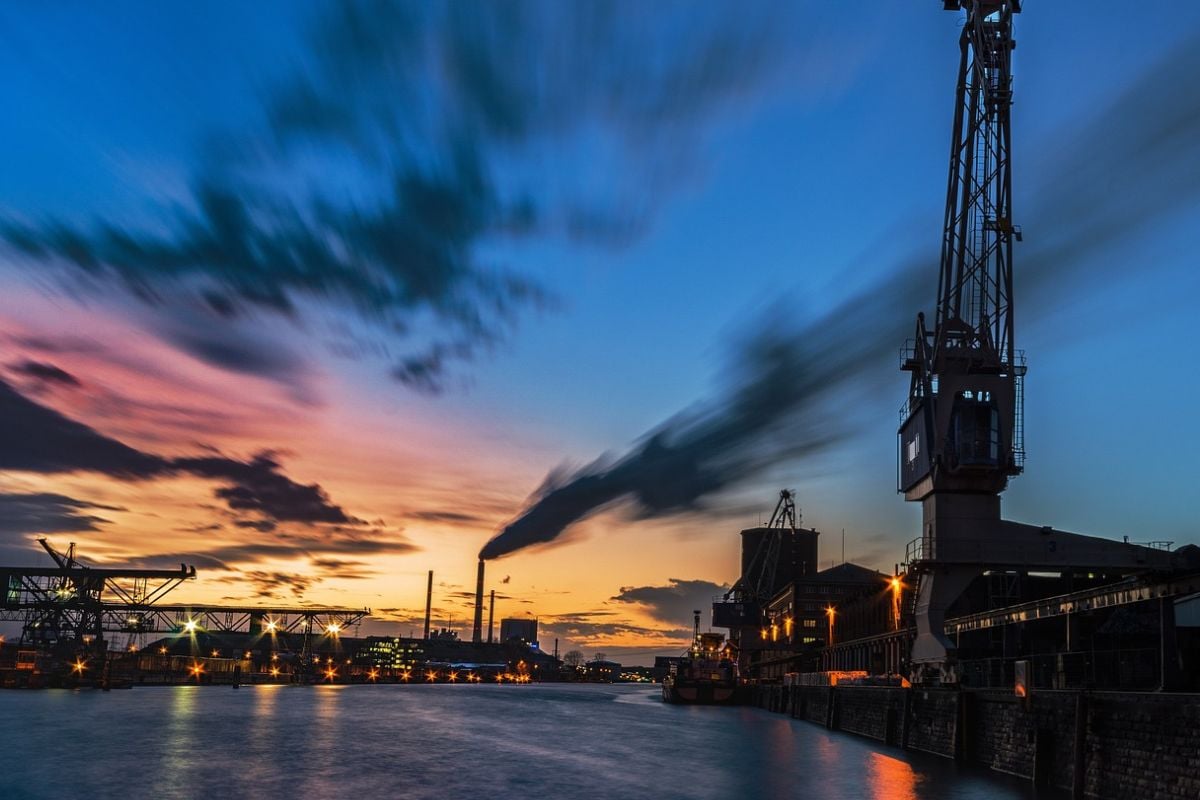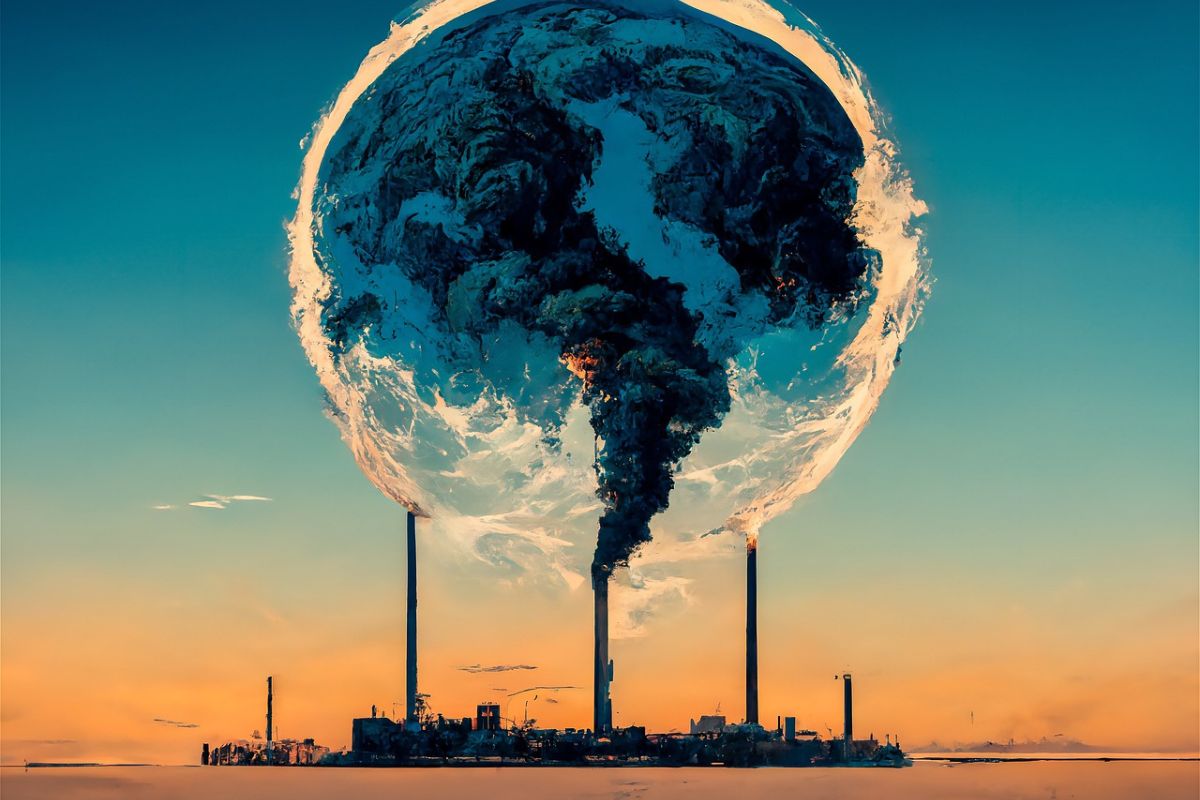A decade ago, it was still common enough for business leaders to be asking whether climate change was really an immediate threat.
Today, our news feeds are perpetually full of the latest climate damage impacts and every well-informed leader now accepts that we’ve got a massive challenge on our hands.
Recently, I spoke with a small group of entrepreneurs in Melbourne, Australia. I started my presentation by asking those present what was on their minds. The first audience member to answer listed off a range of broken temperature records. Europe on fire. China wilting. Temperatures in Arizona off the charts.
Nobody is seriously debating the scale of the crisis anymore. The question is now one of response to the emergency and what each of us should do.
In conversations like these, the talk can quickly turn to guilt about personal habits of taste and consumption and how we dispose of our waste.
But when the most eminent scientists on the planet in the field are telling us that to have any chance of a safer climate in the future we must reduce greenhouse gas emissions at emergency speed and scale, individual purchasing decisions just don’t cut it.
Of course, every one of us should try and lead good lives according to our personal values. That goes without saying. But we are now in the throes of a climate and ecological emergency which requires a higher order of response.
Emergency response

As United Nations Secretary-General Antonio Gutteres recently said at the launch of the latest ‘Intergovernmental Panel on Climate Change’ report, the latest climate science is a “clarion call to massively fast-track climate efforts by every country and every sector and on every timeframe. In short, our world needs climate action on all fronts – everything, everywhere, all at once.”
We’ve got to make big change, fast – really, really big and really, really fast – and that won’t happen through lots of little acts of individuals making better choices when they buy their groceries. Change at the speed and scale that is now required can only happen at the systemic level.
If you are a business leader then you’ve got some great options because you have the power to make the large-scale decisions and set priorities that are really needed.
In particular, if you are a business leader then you’ve got some great options because you have the power to make the large-scale decisions and set priorities that are really needed.
Take, for instance, a campaign Greenpeace Australia Pacific ran a couple of years ago. REenergise aimed to persuade major Australian businesses to make the big shift from buying electricity generated by fossil fuels to only sourcing from renewable energy by 2025 or sooner – a deadline intended to comply with what is necessary to achieve the globally agreed Paris climate goal.
This work was a priority for Greenpeace, because electricity is the biggest source of domestic greenhouse gas emissions in Australia, of which the corporate world is by far the biggest user.
Success story

The campaign was a huge success. More than 20 major Australian businesses including household names like Coles, Bunnings, Woolworths, ALDI Australia and Telstra made the shift to renewable energy.
In ALDI’s case, then CEO Tom Daunt decided that the company could achieve the goal by the end of 2021 – and ended up beating even that ambitious target by six months, with ALDI using electricity exclusively powered by renewables by 16 June of that year.
The outcome really highlights the difference in impact between individual choice and system-level shifts. For example, when Woolworths CEO Brad Banducci made the great call to commit to sourcing all the company’s electricity from renewable energy by 2025, it was the equivalent in impact of every single home in the Australia state of Tasmania making the decision to go solar.
There are huge corporate risks in greenwashing; but real climate action can be reputational gold.
Crucially, these businesses haven’t just committed to transitioning from sourcing electricity from dirty fossil fuels coal, oil and gas, to cleaner energy from wind and solar; they are also telling the story of the change.
Brands that touch every Australian household began using advertising spend to communicate their decisions, sending the message that renewable energy is the better business option. Greenpeace’s commissioned research demonstrated a significant positive shift in public sentiment that correlated to the campaign.
And for every company that has made the shift, their CEOs have a great story to tell about positive employee response and gaining the upper hand in the competition for talent, as well as really great customer and stakeholder reactions. There are huge corporate risks in greenwashing; but real climate action can be reputational gold.
Opportunity knocks
Of course, not every CEO or executive is responsible for a business that uses a lot of electricity. But there are always significant opportunities for action.
I remember hearing ALDI Australia’s Daunt say once that when he checked his own company’s position, the Greenpeace campaign ask made sense to him, because the company’s largest direct contribution to emissions was coming from the company’s electricity emissions. Daunt’s emphasis on the importance of finding the biggest thing you could do is particularly vital because, in an emergency, you want to make the biggest contribution you can quickly.
There are always significant opportunities for action.
So the question for every business leader is, ‘What is the biggest thing I can do?’ Maybe it is direct emissions cuts. Or maybe you can work to push big emissions cuts within your supply chain. Perhaps you can facilitate industry-wide knowledge sharing about how to drive transformation, or use your own networks to spread the word that urgent change is necessary.
Or if you supply goods and services to coal, oil and gas companies, then you can wind up those commercial arrangements, because you don’t want your business to be implicated in making the world unliveable for our kids. None of us really want that legacy.
Government’s role

And like Australia’s major retailers, you can choose to tell your company’s story publicly. You can also tell the politicians, because there’s a big role for government in making it as easy as possible for business to transform away from fossil fuels.
There’s a good live example at the moment in Australia’s transport sector, the country’s third largest source of emissions and the fastest growing. The federal government is in the process of deciding what a fuel efficiency standard might look like, which is the key regulatory change needed to supercharge the electric vehicle (EV) transformation in Australia.
In order to accelerate Australia’s transition to cleaner transport, Greenpeace is campaigning for strong standards that would help bring Australia up to speed with the rest of the world and accelerate the switch to affordable transport options.
The time is here for all of us to think much bigger than that and to identify and act on the biggest way in which we can make a difference in responding to the climate change emergency.
The strength of these standards will make all the difference when it comes to urgently bringing more affordable EVs into Australia and is crucial if Australia is to meet its climate targets. Australia is the only major economy alongside Russia not to put a policy of this kind in place, so this is a reform that is long overdue.
Businesses can take every opportunity to express support for the federal government to introduce an ambitious, best practice, fuel efficiency standard. And businesses that own road transport fleets can themselves make the commitment to transitioning to fully electric by 2030 or sooner as an increasing number of companies are doing.
In June this year, it was again Woolworths that announced a plan to have all of the company’s petrol home delivery trucks swapped to electric models by 2030.
So if you’re reading this and are concerned about what you can do to help address climate change, sure, drop that cup in recycling. But the time is here for all of us to think much bigger than that and to identify and act on the biggest way in which we can make a difference in responding to the climate change emergency.
David Ritter is CEO of Greenpeace Australia Pacific, where he leads a talented and determined team campaigning to fulfill Greenpeace’s mission to secure an earth capable of nurturing life in all of its magnificent diversity. Ritter is a widely published writer, including three books, The Coal Truth, Contesting Native Title and The Native Title Market.







